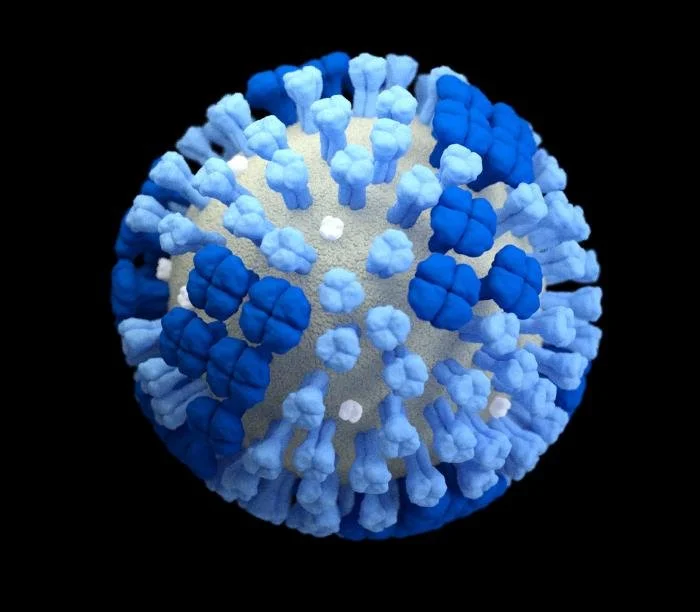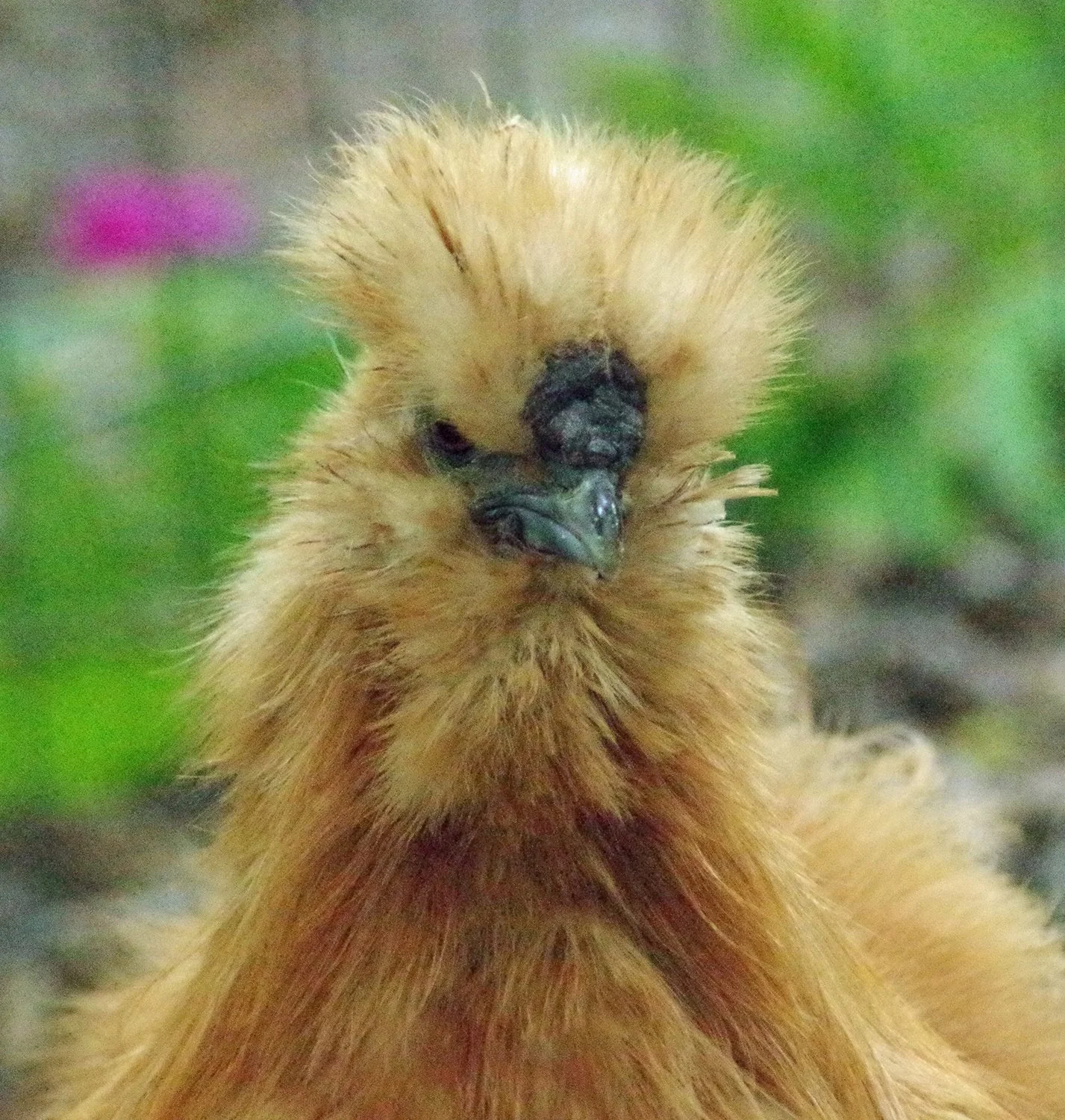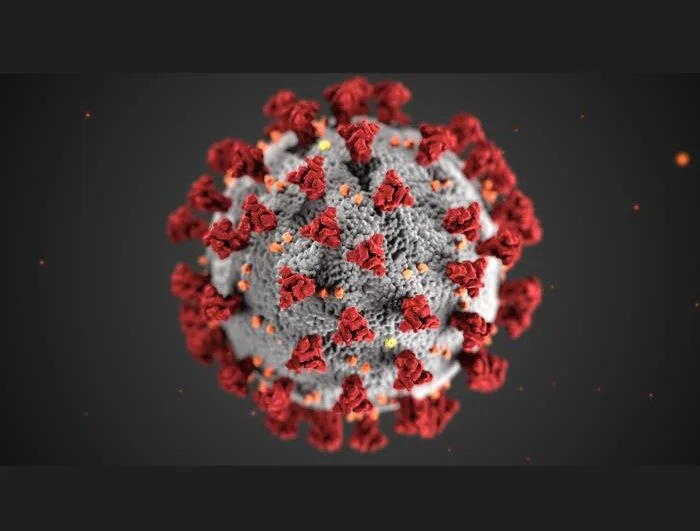Two Viruses: Thoughts on Bird Flu and Covid- (Flu - The Coop, part 1)
Influenza virus: CDC
One morning in early June, I went into the coop to let the birds out for the day and found my little Silkie rooster dying. He was lying on his side and gasping when I found him. I moved him to a comfortable place outside the coop and he was gone within a few minutes. He had been, as far as I know, in complete good health the day before. Sometimes the angel of death moves on rapid wings. And sometimes our birds are under the weather for a while and it isn’t obvious to us. Chickens are prey animals and do their best to mask signs of illness.
It is always hard to lose our feathered friends and Rafael’s sudden and unexpected demise was especially hard for me. Rafael was the head guy in Coop Two, had been with me since the day he hatched, and was one of those chickens that was just bursting with personality. But what unnerved me most about his death was the way he died. He had obvious and extreme pulmonary edema—there was so much fluid in his lungs that it was running from his beak and a pool had formed around him. He drowned in his own bodily fluids.
While certain environmental conditions can cause pulmonary edema in chickens—dust, mold, ammonia—none of those conditions have ever been present in my coop. Many of the other causes are infectious, and if one of those infectious diseases was at play, the whole flock was potentially in danger. Some of those diseases: Avian cholera; infectious laryngotracheitis; mycoplasma; infectious bronchitis. But, the most frightening disease, by far, is avian influenza. Avian flu, as you probably know, has recently been epidemic in the US. I knew that finding a bird in my flock with avian flu would be a death sentence for my entire flock. I also knew that should avian flu be diagnosed in one of my birds, I would be legally bound to report it. And should any of my birds miraculously survive, they would be euthanized to prevent spread. Losing a bird is hard. Losing an entire flock is so devasting to think about that I can’t even wrap my head around it.
I put Rafael’s body in a garbage bag and put him in the fridge for a possible necropsy. Then I did a thorough cleaning and disinfection of the coop. Then I waited. After a week, everybody was still completely healthy. Today, everybody is still fine. I feel like I dodged a bullet. And while it would have been enlightening to find out Rafael’s cause of death, I never got around to the necropsy—I simply ran out of time.
Covid
Covid virus: CDC
Running out of time: We had to fly to Canada for a wedding. Back in 2019, we heard from a family friend that she was marrying her sweetheart. He was Canadian, so they were planning the wedding for a rural spot north of Toronto in the spring of 2020. You can probably guess what happened next. The world got Covid and the wedding was cancelled. The bride and her Canadian groom got married in a civil ceremony. But they still wanted to say their vows in front of their family and friends, so they rescheduled the wedding celebration for 2021. But nope. It didn’t happen. Covid was still rampaging. Eventually, they decided they would march down the aisle in June 2022, even though the bride was six-months pregnant. That was our Canadian trip. I was thrilled to be going.
If you’ve flown anywhere internationally since the pandemic began, you know that it’s not as easy as it used to be. Canada requires official documentation showing that you’ve been vaccinated for Covid. The US requirement is for a negative Covid test administered 24 hours before your flight into the country. We had to jump through those hoops before flying—obtaining the necessary documents for entry into Canada and arranging for a Covid test at the Toronto airport prior to our return trip.
It was a lovely wedding, with a meaningful ceremony in a woodland setting on the shore of a lake. It was also a wedding with built-in Covid precautions. The ceremony, reception, dinner, dance and everything were outdoors. After the wedding, my wife and I headed to Toronto where we’d booked a hotel room—we’d decided we would spend a couple of days experiencing Toronto before heading home.
The wedding was on a Sunday. On Monday we received an email from the groom. Seven people who attended the wedding, he announced, had come down with Covid. As a precaution, my wife and I picked up a home test kit at a pharmacy on Tuesday. We both tested negative. On Wednesday, we drove to the airport and took our preflight Covid screening test. I tested positive.
I double-checked the rules applying to people testing positive prior to entry into the US. I could not fly. I was required to quarantine in Canada for at least ten days. Our next few hours were a flurry of activity: Finding a hotel room (and letting the desk clerk know that I had the dreaded virus); cancelling flights; contacting the kennel, the kitty sitter, and arranging more chicken care! During those first few hours I began to notice a scratchy throat. The sore throat would segue to full-on congestion, headache, sore muscles, and fatigue. I spent much of the next couple of weeks sleeping.
Vacationing in Canada. I had Covid when this picture was taken and didn’t even know it.
Disallowing people with Covid entry to the US makes sense from an infection-control perspective. But here’s my quibble with the people who created that rule: They did not create ANY provisions for taking care of those stranded at the border! It was up to me to find my own accommodations to quarantine. We did find a hotel near the airport and I did my best to stay in my room so as to not expose the hotel staff or other guests, but then (you can’t make this stuff up!) there was a fire alarm and we had to evacuate the hotel. Fortunately, I had my wonderful wife to go on excursions for food. Had I been on my own, my options would have been to expose others or to starve. Also, my wonderful wife, who initially tested negative for Covid, eventually became infected after constantly breathing the Covid-contaminated hotel room air.
Another worry was my medical situation. I had been diagnosed with Lyme disease a week prior to our trip and was taking an antibiotic (yes, I had Lyme disease and Covid at the same time—you really can’t make this stuff up!) I brought enough antibiotic with me to Canada to last until my scheduled return flight to the US. My supply was gone! I called my clinic and my pharmacy in the US to get a prescription written to be filled in a Canadian pharmacy for this important antibiotic. They both told me that they were not allowed to write prescriptions across international borders. Soooo, then I called a Canadian clinic. “You can’t come here!” they told me. “You have Covid! You need to call a virtual clinic for your prescription.” I found a short list of virtual clinics on line. Over the course of an afternoon, I called a handful. I either got voicemail for didn’t connect at all.
Then I called the US embassy in Toronto to have a chat about Covid, quarantining in hotel rooms, my general frustration and, you know; hipster hens, wonder eggs, and the meaning of life. The duty officer was sympathetic, but sympathy was about all he could offer. Then he mentioned the loophole. The law stipulates that one cannot fly into the US if one tests positive for Covid. There is no law dictating testing for Covid if one drives into the US across international borders. This, of course, is a terrible oversight. It means anybody who is foaming at the mouth with Covid can fly into Canada or Mexico from anywhere and then, with the proper documents, drive into the US. It also meant that I, foaming at the mouth with Covid, could also do just that.
We made the drive to Windsor, Ontario, spent the night in a hotel, used a limo service to cross the border to Detroit (our rental car was Canada-only), spent the night in a Detroit hotel & then struck out for home. We are now quarantining in the comfort of our own home. We are both still testing Covid positive. And, ironically, since we’ve returned, the law requiring a Covid test prior flying into the US has been lifted.
Avian Flu Again
While I was Covid-quarantining in the Canadian hotel, I received a request from the CDC by email: “CDC needs your help to protect U.S. recreational flock owners and flocks against H5N1 bird flu. As a person with a large following in the backyard poultry space, you are in a unique position to help CDC share this important information with those who could benefit from it most. We hope that you will join us in raising awareness about this important topic with your audience...”
Thus, while still suffering the effects of one virus, I’ve rolled up my sleeves and am at work writing several posts about another one - avian influenza. I plan to cover the history and biology of influenza in general and bird flu in particular. I’ll also talk about the possibility of flock keepers catching the disease from their birds, steps you can take to protect your flock and yourself, and finally, should this dreaded virus find its way to your flock, the necessary procedures you need to follow. Stay tuned for all of that.
Avian Flu and Covid
As I’ve begun researching for these articles, I’ve been reminded of this important fact: Flu is flu is flu is flu. Avian flu is not a genus, not a strain, and not a subtype. It is simply a convenient shorthand way to refer to those flu subtypes that occur in birds. ALL type A flu outbreaks in humans, including the nasty 1918 "Spanish Flu" pandemic came from birds.
I was startled by this statement in a 2010 article in the epidemiologic journal Public Health Reports: "...the causative agent [of the 1918 flu pandemic] was an avian-descended H1N1 virus and a direct progenitor of all of the influenza A viruses circulating in humans today." We think of the 1918 flu pandemic as something that happened a long, long time ago, but in fact all those cases of (type A) flu we see every year that sicken and kill millions of people around the world are caused by the mutated offspring of that old bug. 1918 flu is still here - now we just call it "flu."
So, let’s take a look at this new virus, Covid, in light of this information about the 1918 flu. When will life return to normal? When will the Covid pandemic end? Well, when did 1918 flu end? There's your answer.
Flu: The Coop - Avian Influenza and Backyard Chickens
Part 1 - Two Viruses: Thoughts on Bird Flu and Covid
Part 3 - Can I Catch Bird Flu From My Chickens? Will it Cause the Next Pandemic?
Part 4 - Why Are Egg Prices So High? When Will They Return to Normal?
Part 5 - Bird Flu Update 2025 –Backyard Flock Keepers’ FAQ’s
Part 6 - Bird Flu 2025 –Protect Your Backyard Flock – Protect Yourself









